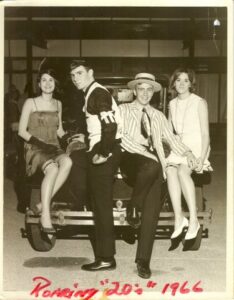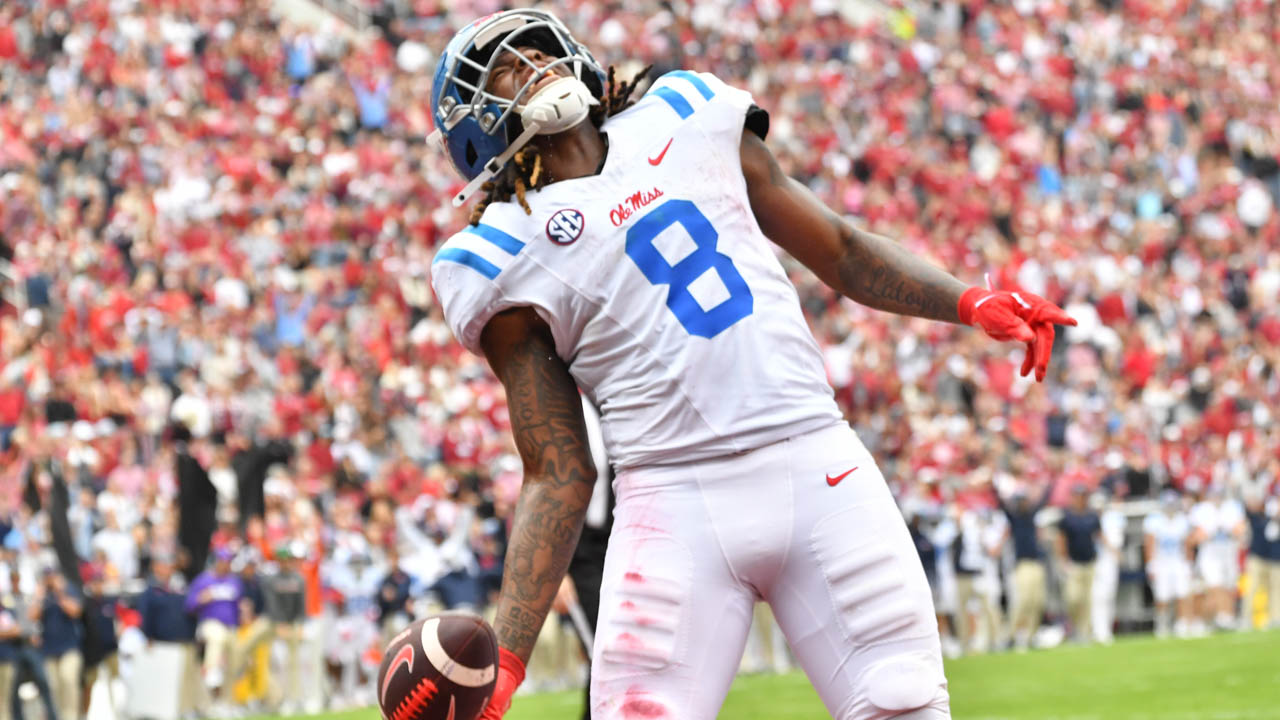Headlines
Vassallo Interviews: Carson Hughes Recalls Golden Days of Oxford
Carson Hughes was the model student at Ole Miss in the 1960s. He now lives in Rankin County with his wife Kay. They have 3 robust grandsons. Carson has enjoyed a most successful career after leaving Ole Miss.
He practiced as a partner with Overstreet and Kuykendall until 1990. Next he joined the management team for Telapex Inc., the Jackson-based holding company for Delta and Franklin Tel. Companies and the C Spire family of telecommunication companies. Here are Carson’s reflections on the Ole Miss of yesteryear.
HottyToddy.com: Describe the Ole Miss campus concisely as you saw it during your time there.
Carson: From my entry (August 1965) to departure (Aug. 13, 1971), the campus was largely a friendly place where people spoke to others and a beautiful place, whose beauty surprisingly has been improved. A general feeling existed among the somewhat smaller student body of being a real part of the living, breathing collective we call Ole Miss. I would refer you to Frank Everett’s poem “Ole Miss”. The education received has served me well and I made lifelong friends who have enriched my life.
HottyToddy.com: What were the dorms like then?
Carson: Short answer, just like the picture the words “boys’ dorm” invokes. There was generally a sense of comradery among the guys sharing a dorm. Several dorms had a lavatory in each room but, very few, if any, had bathrooms connected to each room…you got to really know your neighbors. Sometimes one would even see fellow students cleaning a deer in the shower of the floor’s shared facilities.
HottyToddy.com: Is it true the young ladies had curfews?
Carson: Yes, if memory serves, curfew was 9:30 or 10 weeknights/Sunday and midnight Friday/ Saturday. The limits of the curfew were under semi-frequent attacks, some successful, by students who deemed curfew too early and invoked self-help to avoid its grasp.
HottyToddy.com: How were “race relations” on campus in that era?
Carson: One on one “race relations” were civil for the most part but hesitant at times. Campus wide “race relations” were civil in the larger part but from time to time on campus were more “bumpy” and reflective on a scaled down basis of the demonstrations on many other campuses across the nation. Many young but strong personalities existed, were at work and learning how to best interact within their own groups and with others.
HottyToddy.com: Talk about the freshman initiation haircuts and were there other acts of initiations for males?
Carson: Male initiation actions varied from person to person and group to group. For males, most universal was the freshmen head shaving, which generally was performed under direction of the Cardinal Club on the steps of the Grill for the enjoyment of all who cared to watch. Coincidentally or not, head shaving was largely believed to reduce the chances of freshmen getting ahead of the “more worldly and worthy” upperclassmen in the ritualistic wooing of the new crop of freshmen ladies. For what it is worth, head shaving did make the ROTC hair length inspection at the required Thursday weekly drill easier to pass.
HottyToddy.com: How did the war in Vietnam being underway impact the campus?
Carson: Many students had friends drafted or voluntarily in service and most of the enrolled guys were facing the real chance of being drafted. Small demonstrations against the war (draft) occurred from time to time and mixed feelings existed concerning the “war over there” (or as the song said “that crazy Asian war”). Those views were openly discussed among students in various venues at times. I believe that the presence of the various ROTC units on campus and the generally required two years of participation by males in one of them explains to an extent the general lack of widespread campus demonstrations seen on many campuses.
HottyToddy.com: Where did you typically take a young lady on a “date”?
Carson: The picture show downtown (1 stick or 2 stick), the drive-in (you mean there was something on that big screen thing?), maybe from time to time to Kiamie’s for bowling unless she had earlier beat you bowling, or, if funds were low, maybe over to the fraternity house to watch TV or sing around the piano.
HottyToddy.com: What were the eating establishments like at that time?
Carson: Some fast food (Kiamie like places sans the bowling alleys) or good small town home-style eateries such as Dirty Charlie’s(Son, flip you double or nothing for your meal?), Beacon, The Baitshop, Steve and Angelo’s to name a few. Big time would be a place like the Rendezvous in Memphis
HottyToddy.com: How did you communicate without cell phones or the Internet?
 Carson: Just sit in front of THE GRILL/Campus Post Office on the steps watching the passing groups of students until the person to whom you wish to speak walked by… and they would.
Carson: Just sit in front of THE GRILL/Campus Post Office on the steps watching the passing groups of students until the person to whom you wish to speak walked by… and they would.
HottyToddy.com: What was the Square like?
Carson: It was much more like the other small town court squares in Mississippi at the time. Back then one could park one’s car with ease, find a drug store with a real soda fountain and comic books, check out a record player or TV-like we had the money to buy one, mail a letter at the Oxford post office and/or get a haircut there. It was not nearly as festive, culinary focused, nor crowded. The glorious current state of the Square brings to mind the great, often used Yogi quote: Nobody goes there anymore, it is too crowded!
HottyToddy.com: Are we correct in assuming the Grove had no tailgating?
Carson: Incorrect — true tailgating occurred out of trucks and open trunks of cars. So many vehicles would be parked there that one could almost walk across the Grove on the tops of parked Rebel rides. The Grove would be ugly with ruts after a game on a real rainy day.
HottyToddy.com: Were athletics as important then as today?
Carson: Yes, Think Vaught, Swayze, Kinard, Davidson, Doc Knight, Kessinger, Cunningham, Manning, Poole, etc., SEC Baseball championship, the first televised night time college football game in the nation…. Back then the football players were not the only guys who “suited up” for football games. Guys generally “tied one on” so to speak for every game.
HottyToddy.com: Was there a parking problem on campus?
Carson: Yes, or we perceived there was but not near of the magnitude existing today. Fewer people, fewer cars back then.
HottyToddy.com: What did students do to entertain themselves on weekends?
Carson: Dances, road trips, dating, going to ball games, Sardis or Enid skiing, cookouts (read -beer bust) with friends (to include girls many times), go to Kiamies, play cards and tell lies about how good you were in (insert here activity of your liking) during high school. Heck, once one guy was even seen reading a book.
Carson added that originally The Grove was an informal tailgating get-together when most serious game socializing took place at the fraternity and sorority houses. Automobiles including RV campers were kept out of The Grove since a rainstorm in 1991 reduced the Grove to a swamp. Autos were ultimately replaced by tents.
This will be an Ole Miss never to return, but one that was clearly special in so many ways.
Steve Vassallo is a HottyToddy.com contributor. Steve writes on Ole Miss athletics, Oxford business, politics and other subjects. He is an Ole Miss grad and former radio announcer for the basketball team. In addition, he is a certified economic and community developer and currently, a highly successful leader in the real estate business with Premier Properties of Oxford.You can contact Steve at sovassallo@gmail.com or call him at (985) 852-7745.




























